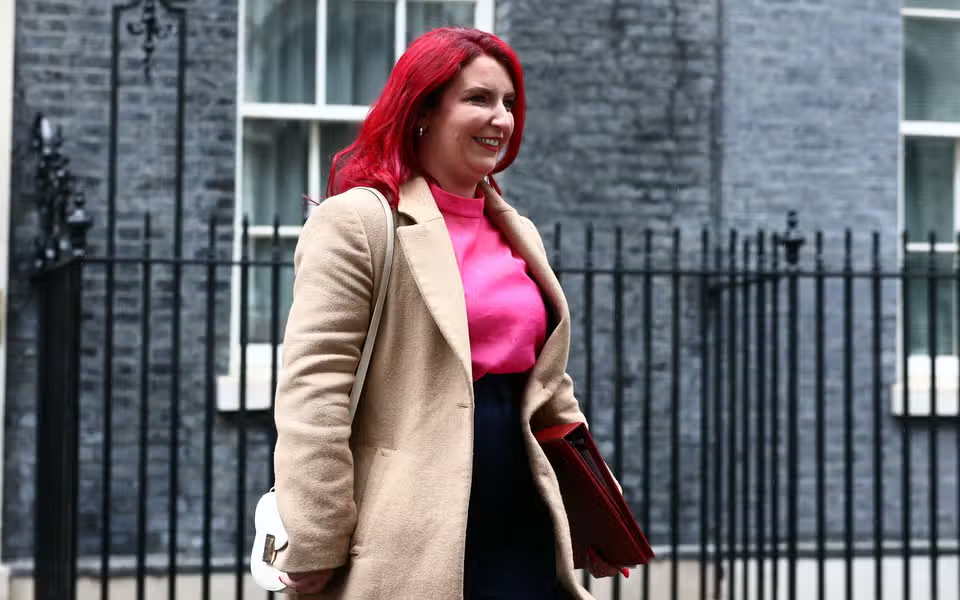
Thames Water has warned that it will run out of money by the end of next May, as the heavily indebted company intensifies efforts to secure fresh funding.
Britain’s biggest water firm, which is creaking under a debt pile of more than £15 billion, said on Tuesday that it had £1.8 billion of cash reserves at the end of June, a fall from £2.4 billion three months previously.
The firm said it is still looking for new funds needed to maintain and update its infrastructure, after investors pulled the plug on £500 million of emergency cash earlier this year.
The days of putting shareholder interest above the national interest, frankly, can’t carry on and so we do need to look at that and Thames do need to look at their own house and get it in order
Jim McMahon, communities minister
Chief executive Chris Weston said Thames had taken “informal soundings which have shown there is interest in the market”.
He added that the company will be looking at a “broad church” of potential investors which could include existing shareholders.
If it ultimately fails to attract fresh funding, Thames Water’s fraying finances could present Sir Keir Starmer’s newly elected Labour Government with a significant industrial crisis.
A blueprint codenamed Project Timber was being drawn up in Whitehall in the spring, according to reports, which could see the company effectively nationalised.
Under the plans, the company would be placed in a form of special administration in the scenario that its parent company fails.
Read More
Mr Weston added that it is “not in the interests” of customers or investors for the company to fall into Government hands.
Communities minister Jim McMahon said on Tuesday morning: “We recognise that, over the last 14 years, frankly, the water industry hasn’t been regulated anywhere near as firmly as it should have been, and we haven’t seen the investment to deal with the sewage scandal.”
He said there is a need for reform and for regulation to be looked at, adding: “The days of putting shareholder interest above the national interest, frankly, can’t carry on and so we do need to look at that and Thames do need to look at their own house and get it in order.”
Mr McMahon said there is “no programme of nationalisation for the water industry” when asked what the plan is if the company collapses.
He did however say there is “no provision in law for a water company to stop providing water”, adding: “We need to be very clear there is always a contingency in place.”
Thames Water’s financial update will be followed on Thursday by a draft verdict from Ofwat on water companies’ five-year spending plans and bill increases to 2030.
That will kick off six months of negotiations with Ofwat, ahead of its final decision in December.
Thames Water, which has 16 million customers in London and the Thames Valley region, put forward plans in April that would see spending rise to £19.8 billion to update its infrastructure and reduce sewage spills.
However, that would also involve increasing customer bills by 44%, a figure which has prompted backlash from consumer groups.
Meanwhile, the process of securing new cash is “not expected to conclude” until after Ofwat’s final decision on Thames’ business plan in December.
You might not like the answer, but rain has a big impact on spills
Chris Weston, Thames Water
Any increase in bills would be greeted with anger, after Thames Water and other water companies’ disastrous recent environmental records sparked a nationwide scandal over pollution.
Thames said pollution incidents increased to 350, up on 331 last year, which it blamed on a rainier-than-expected year.
The number of “serious pollutions” decreased by 18%, Thames Water said.
When questioned on the issue on Tuesday, Mr Weston said: “You might not like the answer, but rain has a big impact on spills.”
It comes amid reports that Sir Keir has been briefed that the poor state of Thames Water’s physical infrastructure presents a “critical risk” to the country.
Fears about the company include its management of sites that provide drinking water and sewage treatment for London and the Thames Valley, The Guardian newspaper reported.
Thames Water said it spent £2 billion on maintaining and updating its infrastructure last year.
Disclaimer: The copyright of this article belongs to the original author. Reposting this article is solely for the purpose of information dissemination and does not constitute any investment advice. If there is any infringement, please contact us immediately. We will make corrections or deletions as necessary. Thank you.



